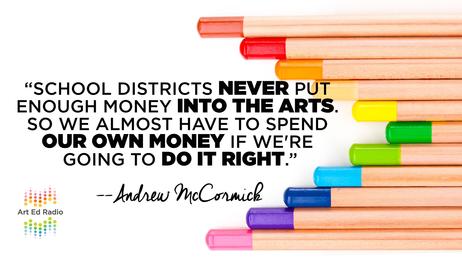In this in-depth article, we dive into the ongoing clashes between parents and school boards surrounding the allocation of educational budgets in public schools. As educational funding becomes an increasingly contentious issue, it sparks impassioned debates and heightens tensions within local communities.
Explore the underlying factors driving these conflicts as we shed light on the differing perspectives of parents and school boards. Discover the priorities and concerns on both sides, from parents advocating for enhanced resources in specific areas such as special education, extracurricular activities, or classroom technology, to school boards grappling with the challenge of balancing limited resources across various educational needs.
Investigate how these battles impact the educational landscape, as decisions on budget allocations have far-reaching consequences for student opportunities, teacher support, and overall school performance. Delve into the role of advocacy groups, community engagement, and government policies in shaping the outcome of these budgetary struggles.
School boards are typically responsible for making the final financial and budgetary decisions for their schools and districts. However, in an increasing trend, many community members are expressing outrage over some of these budgetary choices.
Opponents to board-based educational decisions argue that board members have been far removed from the classroom setting and are out of touch with the real problems of their local schools. In addition, fueled by the recessionary setbacks, community members are fighting for more rights in their local district’s decision-making processes.
Fighting for a Voice
As the Los Angeles Daily News reports, the Los Angeles public school community is one of the many school districts facing a call for increased public advocacy. After recent financial and benefit wars between public school officials and unions, parents of students are striving to form their own collective organization in order to fight for their children’s rights. Using grassroots protest tactics, including letter drives and marches, supporters of this movement seek to find an optimistic change in how the district’s funds are managed.
The report reveals that the past several years of financial setbacks in Los Angeles have resulted in drops in extracurricular activities, field trips, elective courses, and additional programs. In fact, some public schools have even asked for parents to contribute their own financial support to pay for these at-risk programs or even meet the costs of teacher salaries!
With this mounting frustration, community members are even more irate over the recent $600 million budget cut projected for public schools. Buckling under this financial strain, schools are anticipating laying off over 3,000 public school teachers, resulting in larger class sizes, fewer resources, and less student support.
Fortunately, the outcry for more power from community involvement is being heard. The Los Angeles Unified School District recently outlined a budget plan wherein “school site councils - made up of staff and parents - will make decisions on how to spend federal stimulus dollars that will allow them to buy back laid-off teachers and cut programs.” This watershed movement will certainly trigger more involvement across the country.
Adding to the irritation of funding disagreements, many parents and teachers are also frustrated over the school board’s power to determine each classroom’s curriculum. For example, as MSNBC reports, some community members have expressed disagreements with a school board’s recent decision to downplay the instruction and significance of evolution.
This video reports on the school board's battle over the budget in Detroit..
Actions and Advocacy Groups
To oppose the often politically motivated choices made by public school boards and decision-makers, many parents and community members have started to establish their own advocacy groups. For example, Oregon Live reveals that the national group fighting for increased community voice in public school decisions, Stand for Children, is urging more local Oregon action. After the recent 2009-2010 budget projection from the state, both the Legislators and the Governor have been informed that funding for public education will be further reduced “By about one-sixth from the already inadequate level the Governor first proposed a few months ago.” Consequently, leaders assert that school programs, teachers, and additional resources will be eliminated.
This video reports on another school board budget battle.
Although all public institutions face financial setbacks, educational advocates argue that children should not be punished for our unfortunate economic circumstances. In contrast, many policy-makers argue that parents should help ease schools' financial woes by engaging in fundraising events and promotions.
With the assistance of nationwide and local non-profit organizations, parents and community members are finding new ways to raise their collective voices. Specifically, the popular Stand for Children organization has recently established state-based centers to fight for increased teacher quality programs and greater legislative input from citizens.
Questions? Contact us on Facebook. @publicschoolreview
#EducationalBudgets #PublicSchools #BudgetAllocations #ParentsVsSchoolBoards #EducationFunding #CommunityEngagement #TeacherSupport #SpecialEducation #ExtracurricularActivities #ClassroomTechnology #EducationAdvocacy #GovernmentPolicies #SchoolPerformance #StudentOpportunities











